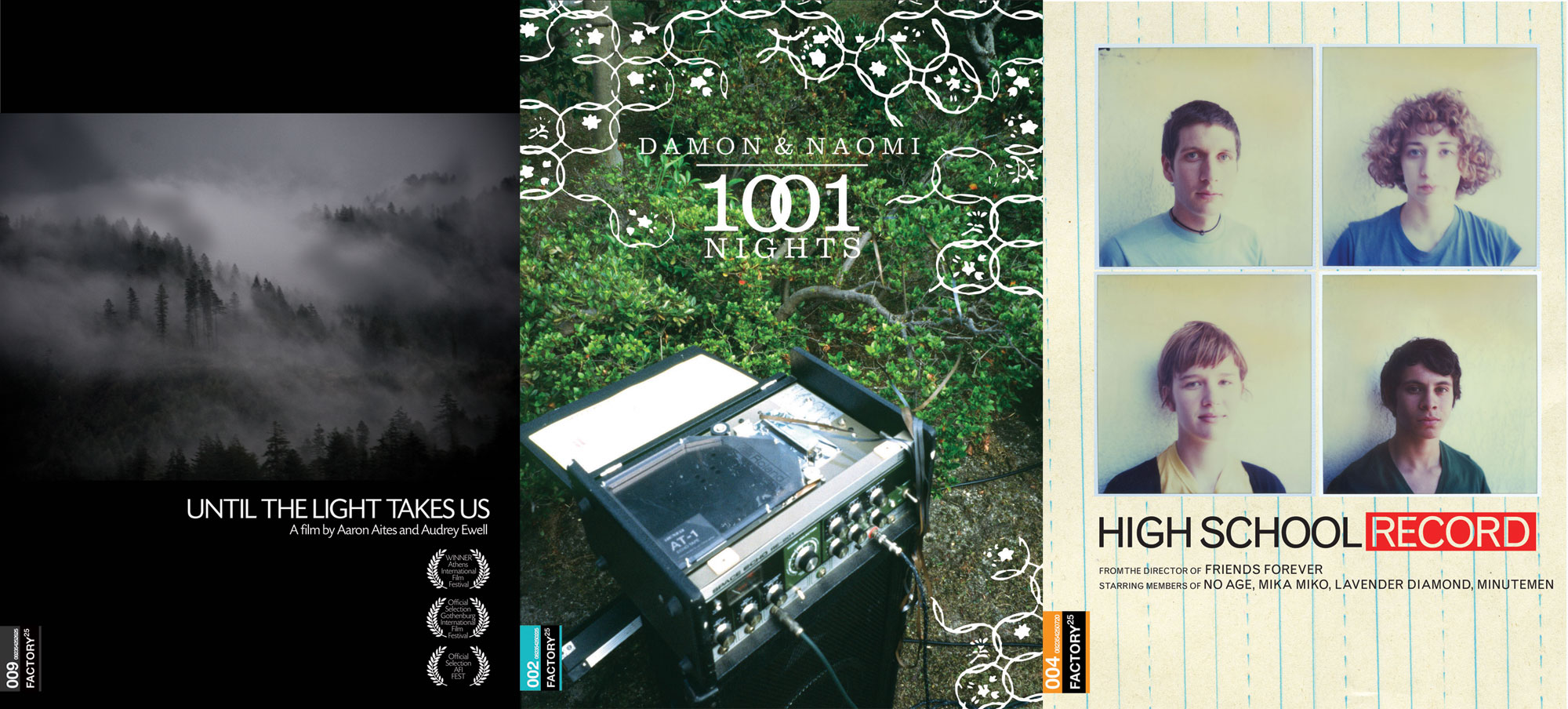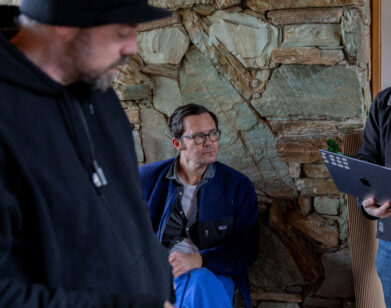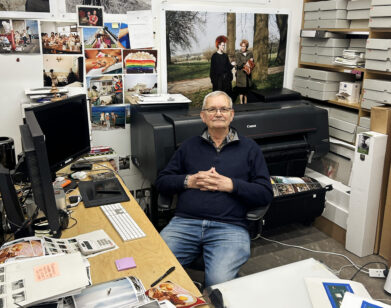Factory Boy: Matt Grady Talks Distribution

SEVERAL OF FACTORY 25’S RELEASES.
Independent distribution company Factory 25 does not exactly have a type. Included in its catalog are an unrequited zombie love story, a scripted adaptation of Jerome Robbins’ “ballet in sneakers,” a rare look at Chicago’s punk scene, Ronnie Bronstein’s “rotten egg lobbed with spazmo aim at the spotless surface of the silver screen” (whatever that means), and Stella Schnabel as a New York misfit. Eager to keep alive the collector’s approach to physical media, founder Matt Grady’s designs and packaging reinvent the notion of “special features.” Found objects like strips of 16mm footage, scribbled cartoons, character artifacts, vinyl LPs, essays by critics, friends, and admirers, accompany each film and add texture to its story and production. We spoke to the Brooklyn-based founder about his company, his influences, and the year in film.
DURGA CHEW-BOSE: First, I’m not entirely sure what to call Factory 25. It doesn’t really fall under the same canopy of other distribution companies.
MATT GRADY: Yeah, well, we do distribute films, but I feel like we’re almost something other than that.
CHEW-BOSE: Right—can you talk a bit about how it all got started?
GRADY: In 2002, I was getting involved with Plexifilm, pretty much right when it started. It’s Gary Hustwit’s company, the guy who directed Helvetica and Objectified. And he was starting it, and he only had a couple titles. One was Wilco’s I Am Trying to Break Your Heart and this other movie, Benjamin Smoke, which is still one of my all-time favorite documentaries. I don’t know if you’ve heard of it…
CHEW-BOSE: No, what is it?
GRADY: It’s about this cross-dressing Southern singer called Benjamin. And it’s directed by Jem Cohen, who did Fugazi: Instrument. So yeah, Plexifilm, I was there for eight years with Gary, trying to build a catalog of cool indie stuff, and we did. And a few years ago I decided that there were so many films I was seeing that I wanted to put out, so I thought, “I’m just going to do it.” I had a few new directions I wanted to take, like pairing vinyl with DVDs, and everyone thought I was pretty much crazy for that. So yeah, I wanted to put out under-the-radar indie films that I felt deserved a bigger audience. The first film that really did it was Frownland.
CHEW-BOSE: You either love that movie or hate it. I loved it.
GRADY: Yeah, it’s one of those films…
CHEW-BOSE: And [Ronald Bronstein] just won a Gotham Award!
GRADY: Yes. Amazing.
CHEW-BOSE: Daddy Longlegs was one of my favorite movies of the year.
GRADY: Mine, too. Frownland is the kind of movie that you tell your friends to see, and half of them will never listen to anything you ever say after that, and the other half will love it and want to know more.
CHEW-BOSE: Yeah, it’s a bit of a wild card.
GRADY: So that was the first thing Factory 25 released. And before I announced it, I was able to get a bunch of titles.
CHEW-BOSE: Did you have a big inaugural sort of celebration—although I guess that’s oxymoronic in terms of the film—for Frownland?
GRADY: Actually, the day I announced it and the website went up was the day Michael Jackson died. So I started getting some press and I thought, “Great! People care about this.” And then all of a sudden, nothing. I mean, makes sense. It’s not like that happens every day.
CHEW-BOSE: Design-wise, Factory 25 has a very specific aesthetic in terms of packaging, which separates it from other distributors.
GRADY: Yeah, immediately from when I start watching the movie, I start having ideas. My goal is to, for lack of a better way of saying it, make a piece of art. Like with Frownland, dealing with Ronnie was amazing, because we wanted to make the world of the film this piece.
CHEW-BOSE: Yeah, the way the packaging is described on your website captures the film entirely: “Excerpts from an insufferably long-winded email exchange,” and “mean-spirited drawings.”
GRADY: Ronnie wrote all of that.
CHEW-BOSE: So you collaborate a lot with the artists when designing your packaging?
GRADY: Yes. I put my heart and soul into every project, but the projects that where I’ve worked really closely with the directors, with their vision, I think that’s when it’s really been great.
CHEW-BOSE: And Ry Russo-Young’s You Wont Miss Me, which is also in your catalog, recently opened. What do you have planned for that packaging?
GRADY: It’s going to be an art book done by Stella Schnabel with collage, and the LP is this band Stylofone, and members of the band went on to become Amazing Baby and MGMT. And it’s never been released, so that’s in there. And there will be essays by Karina Longworth and Lena Dunham.
CHEW-BOSE: Where does the name Factory 25 come from?
GRADY: I was working on this project about obsession and talking with these people who are obsessed with baseball cards. And the one baseball card, Honus Wagner, it’s a tobacco card. It’s the Holy Grail of baseball cards. There’s one that’s worth millions and millions of dollars. So where that card was made was in this factory, in Factory 25. And I always thought it was amazing that people know where that card was made. So I went with that because I wanted to develop a collector’s mentality to film, and make things amazing, and sort of fetishize. I want to make things that people are obsessed with.
CHEW-BOSE: On your site, there’s a whole section dedicated to Friends of Factory 25. Could you share a bit about what sort of community you are a part of, especially on the Internet? Your list includes more than just film and music—also “Design friends” and “Friends who write and read.”
GRADY: A lot of it has to do with being in Brooklyn. There are so many writers, people with similar interests, and we all do things together and collaborate. It’s all people who really about art and what they do. Even if it isn’t similar to what I do.
CHEW-BOSE: Who were some of your influences when designing what Factory 25 would be, in terms of its aesthetic?
GRADY: I mean I was heavily influenced by certain things. In terms of design, Peter Saville and Vaughan Oliver, and artists who designed records from the ’80s and ’90s. And you know, in terms of the film, it’s more about the feel and the passion behind it. You know, I never thought I would release in the span of two months a black metal, a ballet, and a zombie film. Actually, I didn’t even realize how odd that was. But I feel like they all work together!
CHEW-BOSE: And if you can, top ten movies of 2010?
GRADY: Daddy Longlegs, NY Export: Opus Jazz, Marwencol, Beetle Queen Conquers Tokyo, I Am Secretly An Important Man, Tiny Furniture, Guy and Madeline on a Park Bench, Kati with an I, Winter’s Bone, and The Colonel’s Bride.
CHEW-BOSE: Thanks!
GRADY: Thank you!
FOR MORE ABOUT FACTORY 25, VISIT THEIR WEBSITE.






